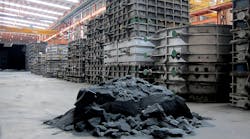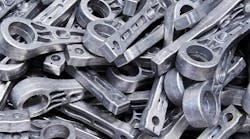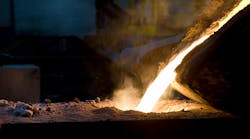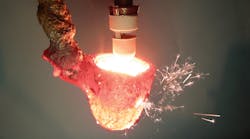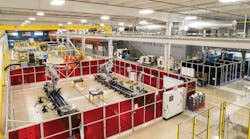The federal Occupational Safety and Health Administration has cited PCC Structurals-Groton, a steel investment casting foundry in Groton, CT, with 20 serious violations of workplace safety regulations. It said its inspectors found employees there faced the risk of chemical burns, fire, lacerations, amputations, electric shock and other injuries,
PCC Structurals-Groton produces stainless and alloy steel and superalloy (nickel- and cobalt-based) investment castings for aerospace and energy markets. It is an operating unit of Precision Castparts Corporation, which recently was acquired by Berkshire Hathaway Inc. in an estimated $32-billion all-cash deal.
The company has not commented on the citations.
Among the conditions listed by OSHA were a lack of hand, face and body protection for employees working on or near electrical equipment; exposed live electrical parts; misused electrical equipment and power cords; inadequate working space around electrical panel boards; and an ungrounded extension cord; and unguarded points of operation of hydraulic presses.
OSHA also stated that PCC Structurals failed to insect energy control procedures periodically to prevent the unintended startup of machinery during maintenance and cleaning; and had no program to inspect chain alloy slings used to lift materials and equipment. OSHA also listed several more violations in its release.
OSHA’s terminology identifies a “serious” hazard as one from which death or serious physical harm may result, and which an employer knew or should have known exists. In an earlier inspection, OSHA had cited the plant for two serious violations concerning inadequate fall protection equipment and an unprotected table saw.
In addition to requiring the foundry to correct the violations, the agency proposed penalties totaling $90,000 in fines. Fines of $14,000 were proposed for the two earlier violations.
As in all such cases, OSHA allowed PCC Structurals 15 business days from its receipt of the citations and proposed penalties to comply with them, meet with OSHA's area director, or contest the findings before the independent Occupational Safety and Health Review Commission.
"Our inspections identified a disturbing cross-section of hazards that could result in eye, face or body injuries, burns, or hearing loss for employees at the Groton location, as well as potential fires or explosions. It's imperative for the health and well-being of its employees that PCC Structurals takes comprehensive, effective and ongoing corrective action to eliminate these hazards," stated Warren Simpson, OSHA's area director in Hartford.

